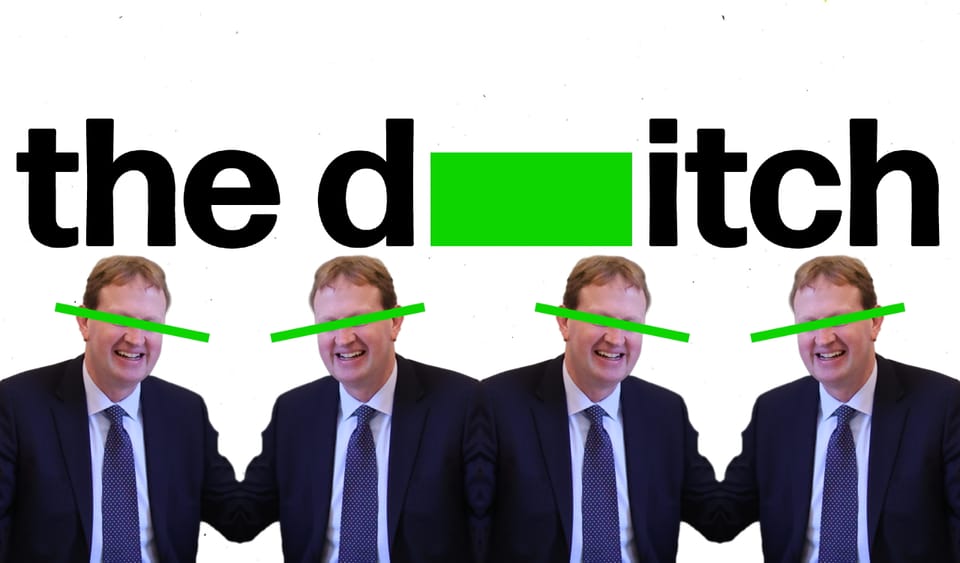About two weeks ago in Tallaght a gang of young men brutally attacked a man from India as he walked down the street. Falsely accusing him of behaving inappropriately towards children, they ripped off his clothes and left him lying naked and bloodied on the pavement. A video of the aftermath ended up online, prompting outrage and political condemnation.
So-called concerned citizens exploit these attacks. The Times recently reported that a “Christian nationalist” group led by Donegal man Niall McConnell incorporates footage of similar assaults on migrants in its marketing. The content shows stabbings, teenagers punching and kicking asylum seekers and gardaí chasing people. McConnell intersperses shots of these incidents with calls for members of the public to join his organisation.
“Play your part in stopping the mass immigration invasion into Ireland now,” he says, also referring to migrants as “savages” and “heathens”. As a bonus McConnell offers to send new members a copy of the 1916 proclamation, and an issue of the “Irish patriot newspaper”.
The Irish far-right, a malignant offshoot of British fascism, is emboldened enough to openly organise militant groups. Last year Justin Barrett launched Sciath Náisúinta, a wing of his new outfit, Clann Éireann. Barrett – a former leader of the National Party and an ex-Youth Defence campaigner – said in promotional material they would protect themselves from “the foreign invader,” “red mobs” and “the overreaching arm of so-called law and order”.
Such groups are not formed, as is often claimed, to defend the nation. They exist to display force and make a spectacle of violence against migrants, to create an atmosphere of terror for non-Irish people and to exert social control over communities, overwhelmingly disadvantaged ones. They seek to channel antisocial behaviour rooted in deprivation, generational trauma and family breakdown into an hysterical cruelty towards perceived enemies of the nation.
But Barrett and McConnell are enthusiastic amateurs. And it shows in every pathetic gesture they make: McConnell with his gormless attempts to commune with the common man in rural towns; Barrett with his Wish.com Hitler schtick, spouting the sort of state-as-living-entity metaphors in Mein Kampf while dressed in what looks like a Nazi costume from a low-budget adult film. Neither has the respectability needed to ingratiate themselves to so-called middle Ireland.
Both have much to learn from justice minister Jim O'Callaghan. He has spent his tenure broadcasting state violence against migrants for political gain while cynically claiming his depraved PR stunts are acts of necessary inhumanity, rooted in responsible and sensible governance.
O’Callaghan gets serious on immigration
We are a nation of laws. And if those laws are not enforced the system becomes meaningless. This is the kind of thinking O’Callaghan claims motivated a decision he made about a month ago to deport 35 people, including five young children, who had been living in an IPAS centre since 2022.
An eyewitness told the Irish Times that several men in cargo pants and heavy jackets arrived as the children were about to eat their breakfasts, sending them upstairs to pack their belongings before announcing that they were to be deported. When other children in the facility understood what was happening, they began crying. The witness described the event as a "horrific scene".
The deportations have a theatrical quality that should unsettle anyone who cares about basic human decency and compassion. Though O'Callaghan told newspapers he "doesn't enjoy" signing off on such removals, he was sure to issue a press release, accompanied by a statement, letting the public know it had taken place and praising those involved for their "successful operation”.
“Two charter flights already conducted this year have removed 71 people who were subject to deportation orders," it says, detailing how 106 people were expelled from Ireland by chartered aircraft this year. "Additionally, 54 removal orders have been enforced on commercial flights and 23 people subject to deportation orders are confirmed to have left Ireland unescorted so far in 2025.”
There’s nothing groundbreaking about any of this. Records from almost two decades ago published by Kildare Street show then-justice minister Michael McDowell defending identical procedures, arguing, “The lack of an effective means to deport persons not granted permission to remain in the state would call into question the integrity of the state's immigration and asylum laws.”
What’s novel to Ireland is the increased focus on public displays of cruelty, mirroring approaches seen in the US and Britain. In May, O'Callaghan sent a camera crew to film 39 Georgian nationals – also including five children – being forcibly removed from the country. The resulting footage showed people being loaded into vans before being packed on a plane and flown away. RTÉ broadcast it and within hours politicians were speaking to the media, applauding the removal.
The performance of cruelty
As Madeleine Allen of the Irish Refugee Council has said, both international and ESRI research shows that punitive immigration policies don't deter people from seeking international protection. Such measures might influence when and how people travel, but not whether they decide to flee. That leaves us with the real reasons O’Callaghan chooses to stage these circuses: to shift blame for decades of Fianna Fáil and Fine Gael policy failures onto desperate families.
This is a government engaged in a performance of cruelty, looking to establish its anti-immigrant bona fides with voters by targeting a group considered a convenient villain. Last September Micheál Martin blamed migrants for underfunded public services and his decision to implement an austere budget despite the state having a surplus of billions. That same month Simon Harris falsely claimed asylum seekers were the root of record homelessness figures – a product of his housing policies.
It is worth asking the following question: is there a meaningful difference between broadcasting state-sanctioned violence against migrants and posting recruitment videos showing attacks on the same people? Savagery like the attack on the innocent man in Tallaght can be expected as long as government punishes migrants for problems it creates and refuses to solve, then feigns shock when members of the public mirror acts of sadism perpetrated by the state itself.


